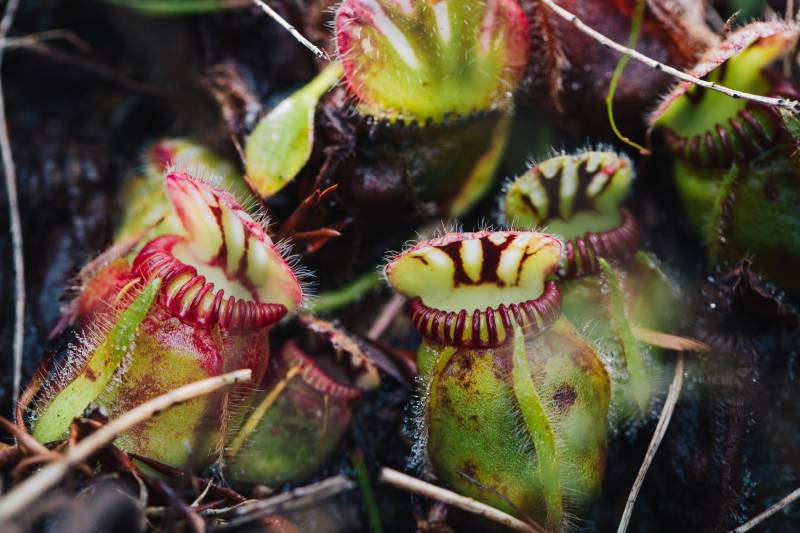Higher Degree by Research Application Portal
| Title | The phylogeography, conservation genetics, and conservation management of an evolutionarily distinct plant and its weird fly |
|---|---|
| Supervisor | Dr Renee Catullo |
| Keywords | Flora |
| Fauna | |
| Genetics | |
| Conservation | |
| Phylogeography | |
| Research area | Biological Sciences |
| Project description | The Albany pitcher plant (Cephalotus follicularis) is restricted to the peat ecosystems of south-western Australia where its modified leaves retain fluid which capture insects. Larvae of the Albany pitcher plant fly (Badisis ambulans) develop within the pitchers with the wingless adults occurring in nearby vegetation. The Albany pitcher plant is the only representative of its family and is unrelated to other pitcher plants; a deeply evolutionarily distinct lineage that is threatened by poaching and climate change. These issues are also expected to affect the fly. This project will use genomic data to detect phylogeographic patterns, assess gene flow across the fragmented distribution of the plant and fly, and provide crucial information for the management of the Albany pitcher plant. These data will also be used to assess the conservation status of the fly. During this project you will undertake fieldwork in Australia’s southwest, a global biodiversity hotspot. You will also gain skills in contemporary population genetics, including laboratory work, genomic sequencing, and population genetic analyses. |
| Opportunity status | Closed |
| Open date | 01 Jan 2024 |
| Close date | 31 Oct 2024 |
| Funding source | Ian Potter Foundation |
| School | School of Biological Sciences |
| Contact | This interdisciplinary project is hosted by School of Biological Sciences (principal supervisor Dr Renee Catullo) but co-supervised by Associate Professor Nicki Mitchell from the School of Biological Sciences, Dr Nikolai Tartanic and Dr Mark Harvey from the Western Australian Museum. Interested applicants are encouraged to contact first principal supervisor Dr Renee Catullo at renee.catullo@uwa.edu.au for more information. Please include a cover letter describing your interest in the field, CV, publications, an academic transcript, relevant supporting documents of prior research, and the names and contact details of two potential referees. |
| Specific project requirement | Prospective candidates should have Masters or Honours degree (first class or equivalent) that include genetics analysis. Good interpersonal communication and the ability to work as part of a multidisciplinary team will be expected from the candidate. The ability for independent, organized work and advanced communication skills in English (oral and written) are also essential. |
| Course type | Doctorates |
Guidance
